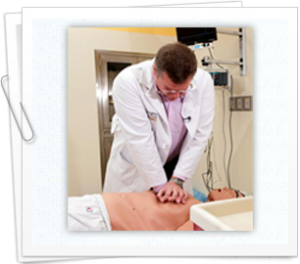Online CPR Certification Blog
Dispatcher assisted CPR improves survival in kids with cardiac arrest
Date: November 12th, 2014
 The researchers finally concluded that children have better odds of surviving a cardiac arrest when bystanders are given CPR instructions by emergency dispatchers. This study also showed that the survivors had a high likelihood of having good functioning of the brained when they received bystander CPR that is dispatcher assisted.
The researchers finally concluded that children have better odds of surviving a cardiac arrest when bystanders are given CPR instructions by emergency dispatchers. This study also showed that the survivors had a high likelihood of having good functioning of the brained when they received bystander CPR that is dispatcher assisted.
The findings of the study
In this study, over 5000 cardiac arrest cases in children were analyzed by the researchers. Infants who were aged up to 18 years got CPR after they suffered a cardiac arrest at home or in public place. Roughly 2000 kids got bystander CPR with the help of dispatcher’s instructions and 700 of them received bystander CPR but dispatcher’s help wasn’t available with the other 2300 not receiving any kind of bystander CPR.
The researchers found that those kids who got the bystander CPR assisted by the dispatcher had a high likelihood of surviving and it was possible to preserve good brain function. There was an increase in survival rates from 8% to 12% when bystanders CPR accompanied with dispatcher instruction were given, which was quite a significant difference. One month after the patient had been diagnosed with a sudden cardiac arrest; there were 81% higher rates of having good brain function for the survivors who got the bystander CPR that was dispatcher assisted. This was 68% higher compared to those who got bystander CPR that was not accompanied by dispatcher help and also compared to the ones who never received any CPR.
The effectiveness of CPR in children
Still, the researchers also noted that for children who had suffered a cardiac arrest, CPR that involved chest compressions accompanied by breaths was much more effective than simply chest compressions alone CPR. This is something worthy noting as it has always been said that chest compressions a lone is always a much better type of CPR than the one accompanied by breaths. So, to enhance the likelihood of the child with a cardiac arrest surviving, it is important that you give chest compressions together with breaths.
Before expectant mothers give birth, it is of paramount importance that they have a good understanding of how they should perform bystander CPR. This is because cases of infants and young children suffering a cardiac arrest have been increasing significantly nowadays. So, knowing how to perform CPR is something of great importance for teachers, parents and any other adult who deals with children as they should know how to best deliver CPR to kids and enhance their survival rate.
There are a number of factors responsible for cardiac arrest in kids. Such include drowning, chocking, head trauma, heavy bleeding, electrical shock, poisoning, lung disease, suffocation and other serious injuries.
